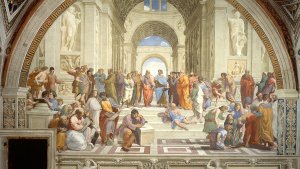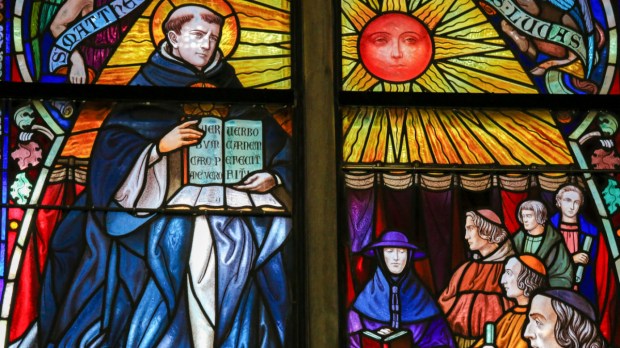Theology is an area of study that impacts every part of the Church, as it concerns the very heart of Christian beliefs.
However, the word can be confusing to some and can appear to be very abstract.
The Church has a variety of definitions of theology, such as the following explanation in the Catechism of the Catholic Church:
The Fathers of the Church distinguish between theology (theologia) and economy (oikonomia). “Theology” refers to the mystery of God’s inmost life within the Blessed Trinity and “economy” to all the works by which God reveals himself and communicates his life. Through the oikonomia the theologia is revealed to us; but conversely, the theologia illuminates the whole oikonomia. God’s works reveal who he is in himself; the mystery of his inmost being enlightens our understanding of all his works. So it is, analogously, among human persons. A person discloses himself in his actions, and the better we know a person, the better we understand his actions.
CCC 236
In this definition, theology refers to the “inmost life within the Blessed Trinity.” Anything that concerns God and who he is, could be called theology.
Rational discourse about God
St. John Paul II goes in-depth in his encyclical letter Fides et Ratio about the definition of theology.
First of all, he writes how, “The name ‘theology’ itself, together with the idea of theology as rational discourse about God.”
This definition echoes the basic understanding of theology as the, “study of God.”
At the same time, theology can be defined in a number of ways, such as the following “sections” of theology that St. John Paul II explains.
For its part, dogmatic theologymust be able to articulate the universal meaning of the mystery of the One and Triune God and of the economy of salvation, both as a narrative and, above all, in the form of argument.
With its specific character as a discipline charged with giving an account of faith (cf. 1 Pet 3:15), the concern of fundamental theologywill be to justify and expound the relationship between faith and philosophical thought.
… moral theology, which employ concepts such as the moral law, conscience, freedom, personal responsibility and guilt, which are in part defined by philosophical ethics.
All of the definitions above only scratch the surface of theology and how humans have categorized the study of God.


